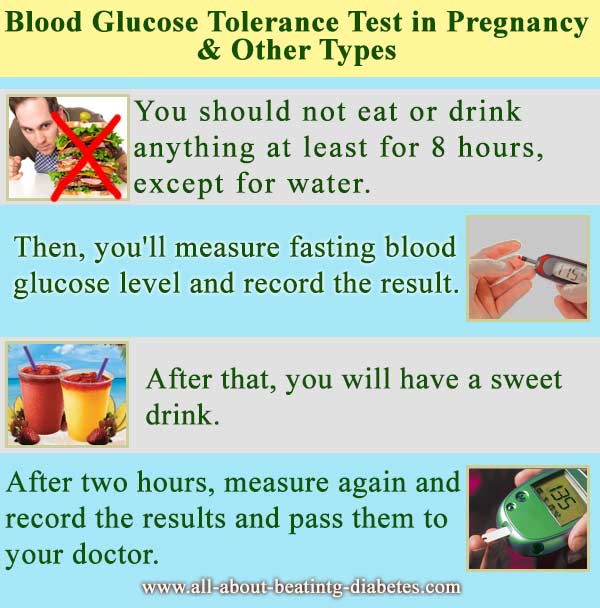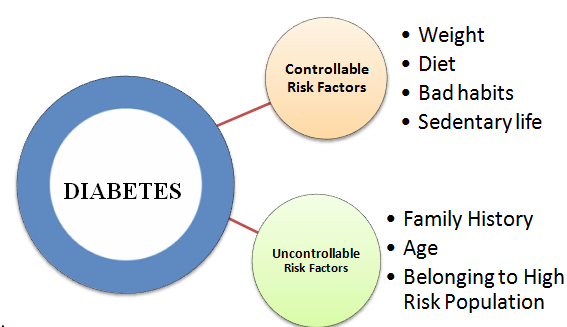- Information
- General
- Insulin Resistance
- What Is Insulin Resistance & Metabolic Disease?
- Insulin resistance treatment – what strategies do I have to follow?
- Learn about causes of insulin resistance and their influence?
- Diet for insulin resistance – How to choose it?
- Reversing insulin resistance – your challenge for life!
- Insulin resistance test
- Insulin Resistance
- Gestational Diabetes
- Causes
- Diabetes Risk Test for all types
- Causes of Diabetes Info
- learn about type 1 diabetes cause
- Does smoking and diabetes link lead to death?
- Low Blood Glucose Causes with Normal Blood Work
- Why Diabetes And Weight Gain? - Is Insulin The Cause?
- Mobile Phone Effects on Blood Glucose
- Passive Smokers Type 2 Diabetes
- Influence of GI on Weight Loss
- Drinking Alcohol and Blood Sugar Levels
- Famous people with diabetes - No"mercy" for nobody!
- Stress and diabetes - how to succeed on it
- Coffee and Diabetes Type 1 & 2
- What are glucosamine side effects on diabetics?
- Glucosamine and Diabetes Link
- Apple Juices? - Freshly made or with Arsenic?
- Does Cephalexin Cause Blood Glucose to Increase?
- Giving Antipsychotic Drugs to your Kid? - Be careful of Diabetes
- Symptoms
- Get to know Symptoms of diabetes
- Type 2 diabetes symptoms
- Recognize diabetes type1 symptoms
- Symptoms of adult diabetes - What are they?
- The Symptoms of Diabetic Gastroparesis
- Diabetes feet symptoms
- Diabetic neuropathy symptoms – how to recognize and care.
- Short video on diabetes symptoms
- Recognize diabetes early symptoms for type 1 and type 2 diabetes
- Pre diabetes symptoms - get know them
- What is the Cost of Diabetes?
- Can diabetics go for beauty treatments or SPAs?
- Natural Remedies
- Beat Naturally
- Beat Naturally
- How diabetes and weight loss go together
- Diabetes type 2 treatments - how do they work?
- How to control diabetes. Tips and answers.
- How to Reduce Blood Sugar?
- Tips for controlling gestational diabetes.
- Diabetes and exercise Tips
- Controlling Cholesterol And Diabetes Naturally
- Blood sugar level control for a better life
- Remedies
- Diabetic Herbal Remedies
- Natural Remedies
- Natural remedies for type two diabetes
- Best Diabetic Vitamins & Scientific Facts
- Are Grapes Beneficial to Diabetics?
- Vitamin C And Diabetes Benefits
- Vitamin E And Diabetes Effect
- Diabetes Vitamin D Deficiency & Benefits
- Taking MDS Forte Elixir for Diabetes Prevention!
- How to Use Bay Levase for Diabetes
- List of Natural Remedies
- Cayenne Pepper for Diabetes Control
- Diabetes Banaba Cure? - Plant-insulin for Diabetics Benefits
- Chromium Picolinate Remedy For Diabetes
- Garlic And Diabetes Benefits
- Vanadium Diabetes Treatment
- Biotin Diabetes Treatment & Benefits
- Gymnema Sylvestre for Diabetes - Get the Benefits
- Cinnamon And Blood Sugar Control Link & Safety
- Green Tea and Blood Sugar Lowering
- Use Fenugreek for Diabetes Control
- Juniper Berries and Diabetes - Natural insuline
- Benefits of fish oil for diabetes
- Green tea and diabetes benefits
- Curing Diabetes And Cinnamon Benefits
- Printable diabetic blood sugar chart
- Saw Palmetto Berry and Diabetes
- Huckleberry and Diabetes Effects
- Diabetes Aloe Vera Juice Benefits!
- A Simple Bitter Melon Diabetes Recipe
- Benefits of Yarrow Flower for Diabetes
- Can Diabetics get benefits by using Guggul?
- Can Bilberry be used to Improve Blood Sugar Control?
- Vitamins & Minerals
- Answered Questions on 19 Natural Blood Sugar Reducers
- Clinical Trials
- Beat Naturally
- Care
- Complications
- Complications
- Diabetes Leg Pain Relief
- Diabetic Coma - definition, etiology
- Diabetic Eye Problems and Diseases
- Diabetes and feet complications
- Diabetic seizures causes, symptoms, treatment
- Causes to Diabetic Feet Pain and turning Purple Blue?
- Diabetic Neuropathy Treatment Options
- Mental Alteration in Diabetics!
- Diabetic nerve pain truly knowledge
- Diabetic Autonomic Neuropathy symptoms
- Diabetic Foot Ulcers Treatment
- Diabetic dermopathy - a comprehensive review
- Diabetes Kidney Disease Pathogenesis and Prevention
- Fatty Diabetes Liver Diseases
- Cold Laser Treatment for Diabetic Neuropathy
- Type 2 Diabetes might lead to Cataracts
- Diabetes Erectile Dysfunction
- Diabetics, Balanitis (Swollen foreskin) &Circumcision
- Diabetes and hair loss problems to resolve
- Side Effects Of Diabetes In Men, Women, Children
- Diabetic Impotence treatment and cures to regain regular sexual life
- Is your Diabetic Heart Killing you softly?
- Ldl diabetes link – How far dangerous is it?
- Causes of Bad Breath in Diabetics
- Choosing the right Diabetic Retinopathy Treatment
- Levels
- Test
- Diabetes Blood Sugar Level - Fasting, Random
- Blood Tests for Diabetes Diagnosing
- Diabetes Urine Test
- Diabetes home testing tips
- Blood Glucose Tolerance Test
- Diabetes testing strips – a practical guide
- How to convert mmol/l to mg/dl?
- Hemoglobin A1C Blood Sugar Level
- Blood sugar level 127-200 mg/dl
- Diabetes medical supplies services
- When does a Prediabetic with A1C result of 5.6 check blood sugar?
- Medical Diabetes Test Supplies
- Diabetes Knowledge Test
- Chart of blood sugar levels
- Your Blood Sugar Log Sheet Guide
- Normal
- Normal adult blood sugar level
- Blood sugar level 70-109 mg/dl
- What Is A Normal Blood Glucose Reading?
- The Normal Range for Random blood glucose test
- What is the ideal blood sugar level for diabetics?
- What is acceptable blood glucose level for diabetics?
- Chart for normal fasting blood sugar levels
- Understanding Normal Blood Sugar Level
- What Are Normal Range Blood Sugar Levels?
- Find out normal blood glucose level
- Normal blood sugar level chart
- Average Blood Glucose Level for Women & Men
- Recognizing good blood sugar levels and respective types of test?
- Childrens blood sugar level - Normal, Average, Acceptable
- Fasting
- After Eating
- Dangerous
- Hypoglycemia
- Test
- Medications
- New Medications
- Metformin-Biguanides
- Benefits Of Metformin Justify its Use?
- Metformin insulin resistance link: Is it really true? How can I get benefit?
- Metformin Dosage Questions for Diabetes Types And PCOS Explained!
- Metformin And Pregnancy Diabetes Control - Can They Go Together?
- Glucophage Side Effects - Discussions On Bad Aspects
- Glucophage and Weight Loss - Is It Side Effect or Benefit?
- Biguanides side effects on your body
- Alfa glucosidase inhibitors side effects
- Sulfonylureas side effects and alternatives
- Thiazolidinediones
- Insulin
- Foods
- Glycemic Index
- Glycemic index chart – understand the food chart
- Glycemic load chart – what is all about?
- The right Balance of Carbohydrates and Diabetes Impact
- Glycemic index of foods – the info you must have
- Glycemic index food chart – what's up?
- Low Glycemic Diet Plan – How to organize it?
- Low glycemic index recipe – sample to follow
- Your Knowledge on Low Glycemic Index Foods
- Low glycemic index fruits
- High glycemic index foods – why to avoid them?
- Diet
- Tips For Best Diabetes Diet Choice!
- Diabetic eating planning
- Low Glycemic Diet
- Borderline diabetic diet
- Role of Structured Diets in Prediabetic Adolescents
- Diabetes low carbohydrate diet
- The Mediterranean Diet for Diabetes!
- Atkins diet diabetes
- Recommended diet for gestational diabetes
- The best cholesterol diabetes diet
- 1200 calorie diabetic diet plan
- Why 1600 calorie diabetic diet plan
- Sample 2000 Calorie Diabetic Diets Plan
- 800 calorie diabetic diet plan
- Foods
- Diabetes Foods
- What are the Foods to avoid diabetes?
- The foods that lower sugar
- Diabetic food guide pyramid
- What are the Foods that control diabetes?
- Choosing the right Fruits for Diabetics
- Tips On Using Diabetic Food Grocery List
- Diabetic food exchange
- Snacks for diabetics - How to prepare yourself
- Preventing and Curing Diabetes with Walnuts
- Recipes
- Meal Plan
- Glycemic Index
- Contact
The Blood Glucose Tolerance Test in Pregnancy & Other Types
What is glucose tolerance test all about? How can I read and interpret the results? Which of them should make me worry?
It is alright to have such worries. I will try to give the right answers, those you strongly need in the following paragraphs.
Now, first of all you must understand why this test is also called blood sugar tolerance test or just glucose tolerance test.
It's a test you perform to get to know how your body breaks down your blood sugar (glucose) and assimilates it.
How can you read and interpret the results?
The normal results would be as following:
The fasting blood glucose level 70 to 100 mg/dl, meanwhile your blood sugar level after two hours should be less than 140 mg/dl.
If your blood glucose level would be between 140 and 200 mg/dl, then you may have pre-diabetes ( or impaired blood glucose level).
If you come out with results more than 200 mg/dl, then you may consider the possibility to have diabetes. But to confirm this, you must repeat the test.
On the other hand, high levels of blood glucose may derive from other health problems. For this you must check with your physician.
The chart below will give you a clearer idea on oral blood glucose tolerance test.
|
Step no.1: You should not eat or drink anything at least for 8 hours, except for water. |
|
Step no.2: Then, you'll measure fasting blood glucose level and record the result. |
|
Step no.3: After that, you will have a sweet drink. Usually, it is required to have a glass of water with added 75 - 100 grams of table sugar. Sometimes,having other drinks with the same quantity of sugar is required. |
|
Step no.4: After two hours, your blood sugar level will be measured again and the results will be recorded and passed to your doctor. |
Actually, the range less than 180 mg/dl will be considered as acceptable blood sugar level for a diabetic.
But you must do your best to keep your blood glucose level nearly at a normal range as much as you can.
Diabetes complications Questions or Problems? Get Help Here
This is the place where you can ask a question about any aspect of diabetes complications.
It's free and it's easy to do. Just fill in the form below, then click on "Submit Your Question".
Recent Articles
-
Taking Onglyza or Nesina is it safe for your Heart?
Feb 24, 25 10:53 AM
Saxagliptin/Alogliptin (DPP-4) heart failure risk in diabetes. Use SGLT2/GLP-1 for high CV risk. ADA/ESC guidelines advise caution. -
Diabetes Leg Pain Relief
Jul 26, 24 04:59 PM
Diabetes leg pain relief involves managing blood sugar, regular exercise, pain medications, proper footwear, daily foot care to prevent further complications. -
Diabetes Blood Sugar Level - Key insights in Managing Diabetes
Jul 15, 24 05:37 PM
How to read and interpret the diabetes blood sugar level? Learn how to manage diabetes effectively by understanding blood sugar levels, their impact on health, and tips for maintaining optimal control…
- Information
- General
- Insulin Resistance
- What Is Insulin Resistance & Metabolic Disease?
- Insulin resistance treatment – what strategies do I have to follow?
- Learn about causes of insulin resistance and their influence?
- Diet for insulin resistance – How to choose it?
- Reversing insulin resistance – your challenge for life!
- Insulin resistance test
- Insulin Resistance
- Gestational Diabetes
- Causes
- Diabetes Risk Test for all types
- Causes of Diabetes Info
- learn about type 1 diabetes cause
- Does smoking and diabetes link lead to death?
- Low Blood Glucose Causes with Normal Blood Work
- Why Diabetes And Weight Gain? - Is Insulin The Cause?
- Mobile Phone Effects on Blood Glucose
- Passive Smokers Type 2 Diabetes
- Influence of GI on Weight Loss
- Drinking Alcohol and Blood Sugar Levels
- Famous people with diabetes - No"mercy" for nobody!
- Stress and diabetes - how to succeed on it
- Coffee and Diabetes Type 1 & 2
- What are glucosamine side effects on diabetics?
- Glucosamine and Diabetes Link
- Apple Juices? - Freshly made or with Arsenic?
- Does Cephalexin Cause Blood Glucose to Increase?
- Giving Antipsychotic Drugs to your Kid? - Be careful of Diabetes
- Symptoms
- Get to know Symptoms of diabetes
- Type 2 diabetes symptoms
- Recognize diabetes type1 symptoms
- Symptoms of adult diabetes - What are they?
- The Symptoms of Diabetic Gastroparesis
- Diabetes feet symptoms
- Diabetic neuropathy symptoms – how to recognize and care.
- Short video on diabetes symptoms
- Recognize diabetes early symptoms for type 1 and type 2 diabetes
- Pre diabetes symptoms - get know them
- What is the Cost of Diabetes?
- Can diabetics go for beauty treatments or SPAs?
- Natural Remedies
- Beat Naturally
- Beat Naturally
- How diabetes and weight loss go together
- Diabetes type 2 treatments - how do they work?
- How to control diabetes. Tips and answers.
- How to Reduce Blood Sugar?
- Tips for controlling gestational diabetes.
- Diabetes and exercise Tips
- Controlling Cholesterol And Diabetes Naturally
- Blood sugar level control for a better life
- Remedies
- Diabetic Herbal Remedies
- Natural Remedies
- Natural remedies for type two diabetes
- Best Diabetic Vitamins & Scientific Facts
- Are Grapes Beneficial to Diabetics?
- Vitamin C And Diabetes Benefits
- Vitamin E And Diabetes Effect
- Diabetes Vitamin D Deficiency & Benefits
- Taking MDS Forte Elixir for Diabetes Prevention!
- How to Use Bay Levase for Diabetes
- List of Natural Remedies
- Cayenne Pepper for Diabetes Control
- Diabetes Banaba Cure? - Plant-insulin for Diabetics Benefits
- Chromium Picolinate Remedy For Diabetes
- Garlic And Diabetes Benefits
- Vanadium Diabetes Treatment
- Biotin Diabetes Treatment & Benefits
- Gymnema Sylvestre for Diabetes - Get the Benefits
- Cinnamon And Blood Sugar Control Link & Safety
- Green Tea and Blood Sugar Lowering
- Use Fenugreek for Diabetes Control
- Juniper Berries and Diabetes - Natural insuline
- Benefits of fish oil for diabetes
- Green tea and diabetes benefits
- Curing Diabetes And Cinnamon Benefits
- Printable diabetic blood sugar chart
- Saw Palmetto Berry and Diabetes
- Huckleberry and Diabetes Effects
- Diabetes Aloe Vera Juice Benefits!
- A Simple Bitter Melon Diabetes Recipe
- Benefits of Yarrow Flower for Diabetes
- Can Diabetics get benefits by using Guggul?
- Can Bilberry be used to Improve Blood Sugar Control?
- Vitamins & Minerals
- Answered Questions on 19 Natural Blood Sugar Reducers
- Clinical Trials
- Beat Naturally
- Care
- Complications
- Complications
- Diabetes Leg Pain Relief
- Diabetic Coma - definition, etiology
- Diabetic Eye Problems and Diseases
- Diabetes and feet complications
- Diabetic seizures causes, symptoms, treatment
- Causes to Diabetic Feet Pain and turning Purple Blue?
- Diabetic Neuropathy Treatment Options
- Mental Alteration in Diabetics!
- Diabetic nerve pain truly knowledge
- Diabetic Autonomic Neuropathy symptoms
- Diabetic Foot Ulcers Treatment
- Diabetic dermopathy - a comprehensive review
- Diabetes Kidney Disease Pathogenesis and Prevention
- Fatty Diabetes Liver Diseases
- Cold Laser Treatment for Diabetic Neuropathy
- Type 2 Diabetes might lead to Cataracts
- Diabetes Erectile Dysfunction
- Diabetics, Balanitis (Swollen foreskin) &Circumcision
- Diabetes and hair loss problems to resolve
- Side Effects Of Diabetes In Men, Women, Children
- Diabetic Impotence treatment and cures to regain regular sexual life
- Is your Diabetic Heart Killing you softly?
- Ldl diabetes link – How far dangerous is it?
- Causes of Bad Breath in Diabetics
- Choosing the right Diabetic Retinopathy Treatment
- Levels
- Test
- Diabetes Blood Sugar Level - Fasting, Random
- Blood Tests for Diabetes Diagnosing
- Diabetes Urine Test
- Diabetes home testing tips
- Blood Glucose Tolerance Test
- Diabetes testing strips – a practical guide
- How to convert mmol/l to mg/dl?
- Hemoglobin A1C Blood Sugar Level
- Blood sugar level 127-200 mg/dl
- Diabetes medical supplies services
- When does a Prediabetic with A1C result of 5.6 check blood sugar?
- Medical Diabetes Test Supplies
- Diabetes Knowledge Test
- Chart of blood sugar levels
- Your Blood Sugar Log Sheet Guide
- Normal
- Normal adult blood sugar level
- Blood sugar level 70-109 mg/dl
- What Is A Normal Blood Glucose Reading?
- The Normal Range for Random blood glucose test
- What is the ideal blood sugar level for diabetics?
- What is acceptable blood glucose level for diabetics?
- Chart for normal fasting blood sugar levels
- Understanding Normal Blood Sugar Level
- What Are Normal Range Blood Sugar Levels?
- Find out normal blood glucose level
- Normal blood sugar level chart
- Average Blood Glucose Level for Women & Men
- Recognizing good blood sugar levels and respective types of test?
- Childrens blood sugar level - Normal, Average, Acceptable
- Fasting
- After Eating
- Dangerous
- Hypoglycemia
- Test
- Medications
- New Medications
- Metformin-Biguanides
- Benefits Of Metformin Justify its Use?
- Metformin insulin resistance link: Is it really true? How can I get benefit?
- Metformin Dosage Questions for Diabetes Types And PCOS Explained!
- Metformin And Pregnancy Diabetes Control - Can They Go Together?
- Glucophage Side Effects - Discussions On Bad Aspects
- Glucophage and Weight Loss - Is It Side Effect or Benefit?
- Biguanides side effects on your body
- Alfa glucosidase inhibitors side effects
- Sulfonylureas side effects and alternatives
- Thiazolidinediones
- Insulin
- Foods
- Glycemic Index
- Glycemic index chart – understand the food chart
- Glycemic load chart – what is all about?
- The right Balance of Carbohydrates and Diabetes Impact
- Glycemic index of foods – the info you must have
- Glycemic index food chart – what's up?
- Low Glycemic Diet Plan – How to organize it?
- Low glycemic index recipe – sample to follow
- Your Knowledge on Low Glycemic Index Foods
- Low glycemic index fruits
- High glycemic index foods – why to avoid them?
- Diet
- Tips For Best Diabetes Diet Choice!
- Diabetic eating planning
- Low Glycemic Diet
- Borderline diabetic diet
- Role of Structured Diets in Prediabetic Adolescents
- Diabetes low carbohydrate diet
- The Mediterranean Diet for Diabetes!
- Atkins diet diabetes
- Recommended diet for gestational diabetes
- The best cholesterol diabetes diet
- 1200 calorie diabetic diet plan
- Why 1600 calorie diabetic diet plan
- Sample 2000 Calorie Diabetic Diets Plan
- 800 calorie diabetic diet plan
- Foods
- Diabetes Foods
- What are the Foods to avoid diabetes?
- The foods that lower sugar
- Diabetic food guide pyramid
- What are the Foods that control diabetes?
- Choosing the right Fruits for Diabetics
- Tips On Using Diabetic Food Grocery List
- Diabetic food exchange
- Snacks for diabetics - How to prepare yourself
- Preventing and Curing Diabetes with Walnuts
- Recipes
- Meal Plan
- Glycemic Index
- Contact
Ask question and get a personalised answer
Recent Articles
-
Taking Onglyza or Nesina is it safe for your Heart?
Saxagliptin/Alogliptin (DPP-4) heart failure risk in diabetes. Use SGLT2/GLP-1 for high CV risk. ADA/ESC guidelines advise caution. -
Diabetes Leg Pain Relief
Diabetes leg pain relief involves managing blood sugar, regular exercise, pain medications, proper footwear, daily foot care to prevent further complications. -
Diabetes Blood Sugar Level - Key insights in Managing Diabetes
How to read and interpret the diabetes blood sugar level? Learn how to manage diabetes effectively by understanding blood sugar levels, their impact on health, and tips for maintaining optimal control…
If this page was helpful, please take a quick moment to share with friends...
Social media drives a lot of traffic to this website so "thank you"!!!
Disclaimer - SiteMap - About Me - Privacy Policy- Contact Us - Search This Site - What's New








